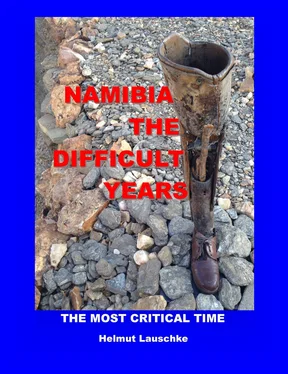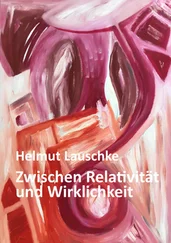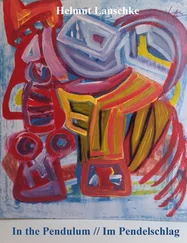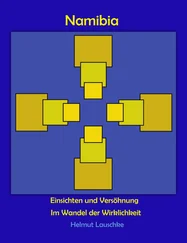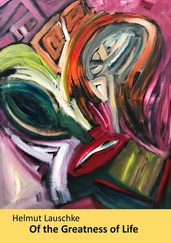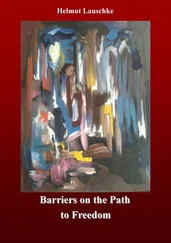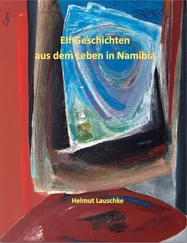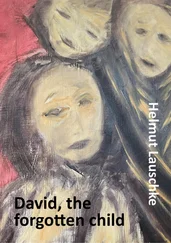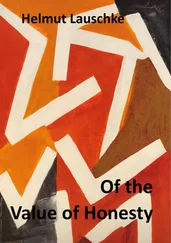On the second trolley lay a five-year-old emaciated girl with a bloated abdomen. The girl had no bowel movement since a couple of days and vomited since two days. The palpation of the abdomen was painful especially in the upper part beneath the xiphoid of the breastbone. The examination resulted in the suspicion of an obstruction at the exit of the stomach. The X-rays confirmed the fracture of the upper ankle joint on the man and a couple of hazelnut-sized stones in the girl’s stomach. The mother told that the girl had not eaten since two days. The stones had to be removed. The mother followed the nurse who brought the trolley with the child to the ward to prepare the child for theatre. I informed the theatre staff and the army doctor who worked in the paediatric ward to give the anaesthetics. The operation was set for five o’clock. In the meantime I reduced the ankle fracture on the man and immobilized the foot by putting on a padded leg cast. After this, the patient was brought to the orthopaedic ward. Other small surgical procedures on other patients were done as well.
It was close to six o’clock. I hurried to theatre and changed clothes in the dressing room. The young army doctor who was a dedicated and friendly colleague, had started the introduction of the anaesthesia. The young instrumenting nurse put the instruments on the instrument table in systematic order, while I washed hands and forearms and dried them in some sterilized sheets of blotting paper. A young nurse pulled the operating coat over me and tied the laces on the back, when I pulled the gloves over the hands. I entered the operating room when the nurse had cleaned and covered the sleeping girl with sterile green sheets. The girl had no fat tissue under her skin. I did a midline incision from the xiphoid to the umbilicus. After dividing the fascial and peritoneal sheets the abdominal cavity was opened. I examined the stomach and palpated the stones. An incision was done before the pylorus and eleven stones were removed. The incision on the stomach and the layers of the abdominal wall were closed by sutures. The wound dressing was fixed with some plaster stripes and the girl was brought to the recovery room where a nurse put the oxygen mask on her face and measured blood pressure and pulse rate in short intervals. Here the girl regained consciousness. I put the eleven stones into a small plastic bag and left the theatre room to change clothes in the dressing room. I gave the plastic bag with the stones to the mother who was worried outside the theatre building. She looked at the plastic bag in her hand and thanked for his work done. This I read from her face. The mother could not understand that the daughter had swallowed so many stones. Since the daughter did not show signs of any mental disorder, to swallow stones had to do with hunger. Girl and trolley left the recovery room. A nurse carried the trolley to the surgical children’s ward, when I followed the trolley and the mother followed me. Both were reflecting on the question why the girl had swallowed the stones. I helped to put the girl from the trolley on the bed and gave some instructions to the nurses. I made my notes in the file and left the ward for the outpatient department where no patient was waiting.
I left the department and rolled up the trouser legs and took the sandals in my hand. I walked barefoot through the mud of the square, passed the gate and kept the walking feet on the middle of the soggy road. A heavy rain came down. I was wet to the skin when I arrived at the checkpoint where two guards stood under the tin roof of the small control building. The guards let me pass with the sandals in my hand when a Casspir passed by and threw the mud in a high arc in my face that the sand stuck in the hair and eyes and ears. I put off the wet and dirty clothes on the veranda and stood naked behind the mosquito mesh and looked on the lake in front in the twilight of the Sunday evening. It was raining when he went into the shower and washed the sand from the hair and face and body. I went to the kitchen in underpants and cut two slices from the tasteless mixed-grain bread and spread some margarine on and ate the slices with appetite, since I had not eaten the whole day. I emptied the cup with cold coffee from the morning and looked over the place with the pouring rain and trees standing in the lake. Voices came from the guest house on the other side. A women giggled that two men started laughing.
I reflected on the day’s events, while I lit up a cigarette and again I experienced the old phenomenon that answers got shorter the deeper the questions went. I stood up and switched on the light. I took a seat on the hard veranda chair at the veranda table in the small sitting room and started writing a letter. The letter was not finished when I laid the sheet aside and took another sheet to write a poem addressed to myself about loneliness of a stranger and of strangely looking people with a strange language I could not understand and about poverty and faces of fear and many other things that made me feel as stranger in this godforsaken corner. The writing went from the hand that he wrote a second poem about love and human being in need of love. I wrote down the thoughts and desires and smoked some cigarettes. I was worried about the strange reality with working days under the extreme and miserable conditions.
The night went by. There was no radio or tape player to listen to music I liked so much. I went to bed and did not pull over the sheet and listened to the hammering sounds of the rain beating the roof. I had a dream when stones were raining from the sky. They cracked on the roof that I crawled under the bed and put hands over my ears. A rock chunk broke through the roof with an ear-splitting bang and crushed me. I saw the girl Kristofina on the other side of the bridge. She turned her head and called my name like a siren to the other side of the bridge. Kristofina shouted that I should take courage and should follow her. She stretched her arm backwards out to get hold of my hand and to drag me to the other side where she was waiting. I came closer when she said with a smile of confidence that lightning cannot strike her anymore and that the rain has stopped. She thanked for the wishes and blessings by reading psalm five and six and the last psalm I did send her afterwards when she had crossed the bridge.
Kristofina could not finish her words of thanks and I was not sure, if she got hold of my hand when the phone was ringing and interrupted the conversation. I was torn off from the dream of the last great bridge. I felt that I was hanging in the air. My skin was sweaty when I took up the receiver. On the other end was the nurse from outpatient department. She asked, if there was a problem with the phone, since she had tried several times to reach me. I apologized and gave the deep sleep as reason, but did not mention the dream about the last bridge where I met Kristofina. The nurse understood. She told that a female patient was brought from Catholic mission hospital Oshikuku with severe abdominal pain. I was awake when I put the receiver down. The rain had stopped as Kristofina has said in the dream.
I put on the clothes which were still wet after I had beaten shirt and trousers against the mosquito mesh to remove the sand. I rolled up the trouser legs when I looked on the paper of the unfinished letter and read the two poems about loneliness in the strangeness and of the desire for love. I put the poems on the table and thought of the poor little girl on whom I had removed eleven hazelnut-sized stones from the stomach and set off for the hospital. The light was on that I could bypass the puddles in the front garden, but the soggy road lay in darkness. On the walk through the mud I had the sandals in my hand and remembered the ‘raining’ stones and the rock chunk that crashed through the roof and crushed down on me.
Читать дальше
